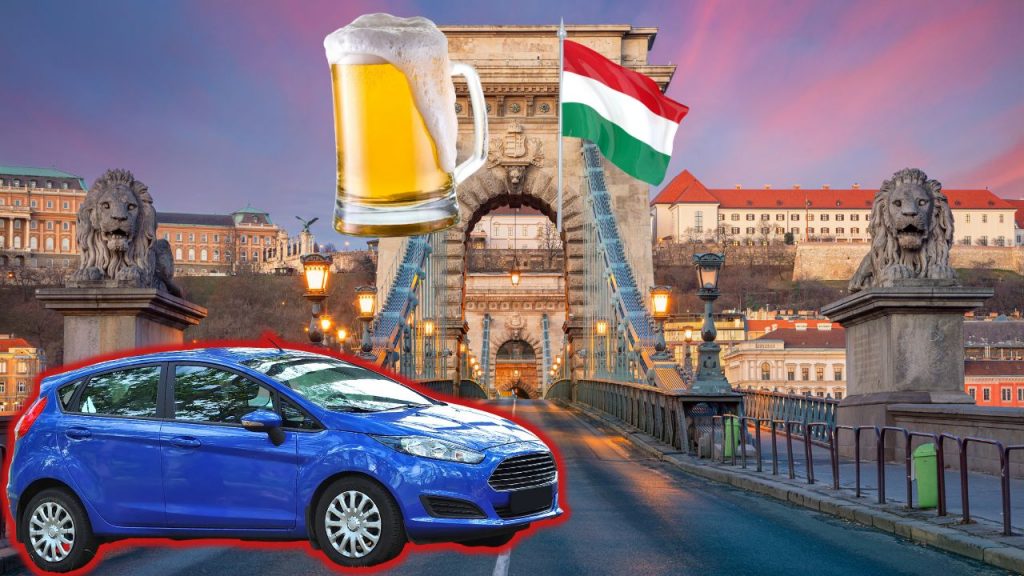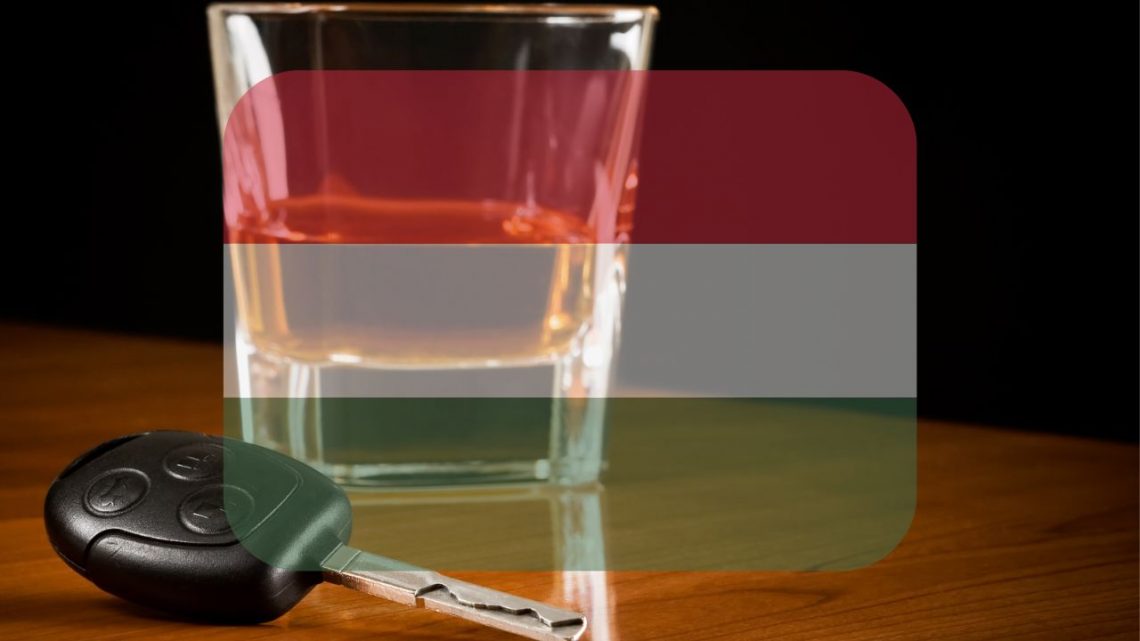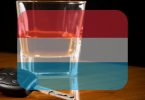In Hungary, the permissible limit for blood alcohol concentration (BAC) for drivers is strictly set at 0.00%. This stringent rule prohibits individuals from driving if they have any detectable amount of alcohol in their system. Non-compliance with this regulation may result in significant consequences, such as financial penalties and potential legal or administrative repercussions.
This webpage intends to spread information and promote awareness regarding the hazards associated with drunk driving in Hungary. The content of this website neither endorses nor encourages drunk driving in any country or region.
What is the legal alcohol limit for driving in Hungary?
In Hungary, driving laws strictly enforce a zero tolerance policy towards alcohol consumption for all drivers. This means the legal alcohol limit for operating a vehicle is set at 0.00%. Essentially, Hungary’s legislation mandates that drivers must have no alcohol in their bloodstream when behind the wheel, underscoring the country’s commitment to road safety and the prevention of alcohol-related accidents. This regulation applies uniformly to all drivers, without exceptions, to ensure the safety of all road users.
Drink and Drive Penalties and Punishments in Hungary
In Hungary, the approach to drink driving is uncompromising, with a legal blood alcohol concentration (BAC) limit for all drivers set at 0.0g/l. This zero-tolerance policy, established in 2008, underscores Hungary’s firm stance on preventing alcohol-related road incidents. It’s important to understand that while a BAC level below 0.5 g/l is not classified as a criminal offense, it is still considered an infraction, subject to specific penalties.
Penalties Based on BAC Levels:
- Up to 0.3g/l: A fine of approximately 75 euros and 6 penalty points on the driver’s license.
- 0.3 to 0.5g/l: A higher fine of around 250 euros, accompanied by 8 penalty points.
- Above 0.5g/l: This level escalates to criminal territory, with no set fine, 11 penalty points, potential imprisonment of up to two years, and a mandatory driving ban ranging from one month up to ten years.
Rehabilitation and Alcohol Interlock Programs:
For offenders facing a suspension of their driver’s license for more than six months or those disqualified from driving due to criminal acts, participation in a rehabilitation course is mandatory. These courses range in cost from approximately 170 to 345 euros and are designed to address and rectify the behaviors that led to the offense.
The rehabilitation process involves several steps:
- Initial Assessment: Includes a theoretical traffic knowledge test, a practical driving test, and an evaluation of the driver’s habits and behaviors.
- Program Assignment: Based on the assessment results, experts recommend one of seven distinct programs tailored to the severity of the offender’s infraction.
- Program Types: Options include theoretical sessions, practical driving lessons, and group discussions, targeting levels of intoxication from slight to severe.
- Duration: Depending on the program, the length varies between 6 and 12 hours.
Given the complexity of drink and drive penalties and the potential for legislative changes, individuals are strongly encouraged to regularly consult the official state website for the most current information. This proactive approach ensures that drivers remain informed about legal expectations and consequences related to drink driving in Hungary.
How Can I Calculate If My Alcohol Blood Limit Is Legal in Hungary?
In Hungary, the enforcement of the legal blood alcohol concentration (BAC) limit is stringent, with a zero tolerance policy of 0.00% for all drivers. The Hungarian police utilize breathalyzer tests at traffic stops to determine a driver’s BAC level. These tests offer immediate results, allowing law enforcement to assess whether a driver is in compliance with the country’s strict no-alcohol policy while driving.
As an experienced phlebotomist with a decade of expertise, I recommend two methods to help you estimate your BAC level, ensuring you remain within legal limits:
- Use a High-Quality Alcohol Breathalyzer: Based on my professional experience, the BACtrack S80 stands out for its reliability and precision. This model is recognized for its Professional-Grade Accuracy and is both DOT & NHTSA Approved and FDA 510(k) Cleared. I strongly advise keeping a BACtrack S80 in your vehicle, especially in Hungary, where individuals might underestimate their alcohol consumption and inadvertently drive impaired. It’s a practical tool that offers peace of mind, helping you make informed decisions about your ability to drive safely.
- Utilize a BAC Calculator: Together with a team of phlebotomists and web developers, I’ve developed an online BAC calculator. This tool is designed to provide an estimate of your BAC level based on various factors, including the amount and type of alcohol consumed, your weight, and the time elapsed since your last drink. It’s an accessible way to gauge your alcohol level before deciding to drive.
It’s crucial to remember that while both methods provide valuable estimates of your BAC, they cannot guarantee 100% accuracy. Factors such as metabolism, food intake, and individual physiological differences can influence your actual BAC. Therefore, these tools should be used as guidelines to assist in making responsible decisions about driving after consuming alcohol. In a country with a 0.00% legal limit, the safest choice is always not to drive if you’ve consumed any alcohol. These precautions can help prevent the risk of driving impaired and facing the severe penalties for DUI in Hungary.
Ways to Avoid Driving With a High BAC in Hungary

Driving under the influence of alcohol is not only illegal but also extremely dangerous. In Hungary, where the legal BAC limit is set at 0.00%, it’s crucial to plan ahead to ensure you and others stay safe on the roads. Here are some practical tips to avoid driving with a high BAC:
- Utilize Taxi Services: Opt for taxi apps like Uber, which operates in many cities and offers a convenient, safe way to get home without risking DUI charges. For local alternatives, consider using reputable taxi companies. In Budapest, “Airport Taxi Budapest” is a reliable choice for getting to and from the airport, while “Taxi Plusz Szeged” serves those in Szeged with professionalism and reliability. These services provide a hassle-free option to travel safely after consuming alcohol.
- Designated Driver Services: If you find yourself in a situation where you’ve driven to a location and then consumed alcohol, a designated driver service is an excellent solution to avoid leaving your car behind. Services like “TransferMe” in Budapest offer the convenience of driving you and your car home safely. To find a designated driver service in your area, a quick Google search for “designated driver service” followed by your city’s name should provide several options. This not only ensures you adhere to the legal BAC limit but also secures your vehicle and gets you home safely.
These alternatives not only help in maintaining compliance with Hungary’s strict DUI laws but also promote safer roads by reducing the likelihood of alcohol-related accidents. Always remember, the best policy is to avoid driving altogether if you plan on drinking. Planning your transportation in advance can save you from potential legal issues and, more importantly, contribute to your safety and that of others on the road.
Sticking to Drink and Drive Laws in Hungary
Alcohol-related road fatalities in Hungary decreased from 65 in 2020 to 51 in 2021, with checks in 2021 finding 1.2% of drivers above the legal limit. This underscores the importance of not driving after consuming alcohol and considering safer transportation alternatives, such as designated driver services or taxis, to mitigate risks.
Understanding and adhering to local DUI laws is essential for maintaining safety on the roads. Regular use of a certified breathalyzer can help ensure you remain within legal limits, providing peace of mind and reducing the risk of impairment.
For comprehensive details on DUI regulations in Hungary and to stay informed about safety practices, the European Transport Safety Council (ETSC) official website is a valuable resource. Prioritizing road safety through informed decisions and responsible behaviors is crucial for all drivers.







